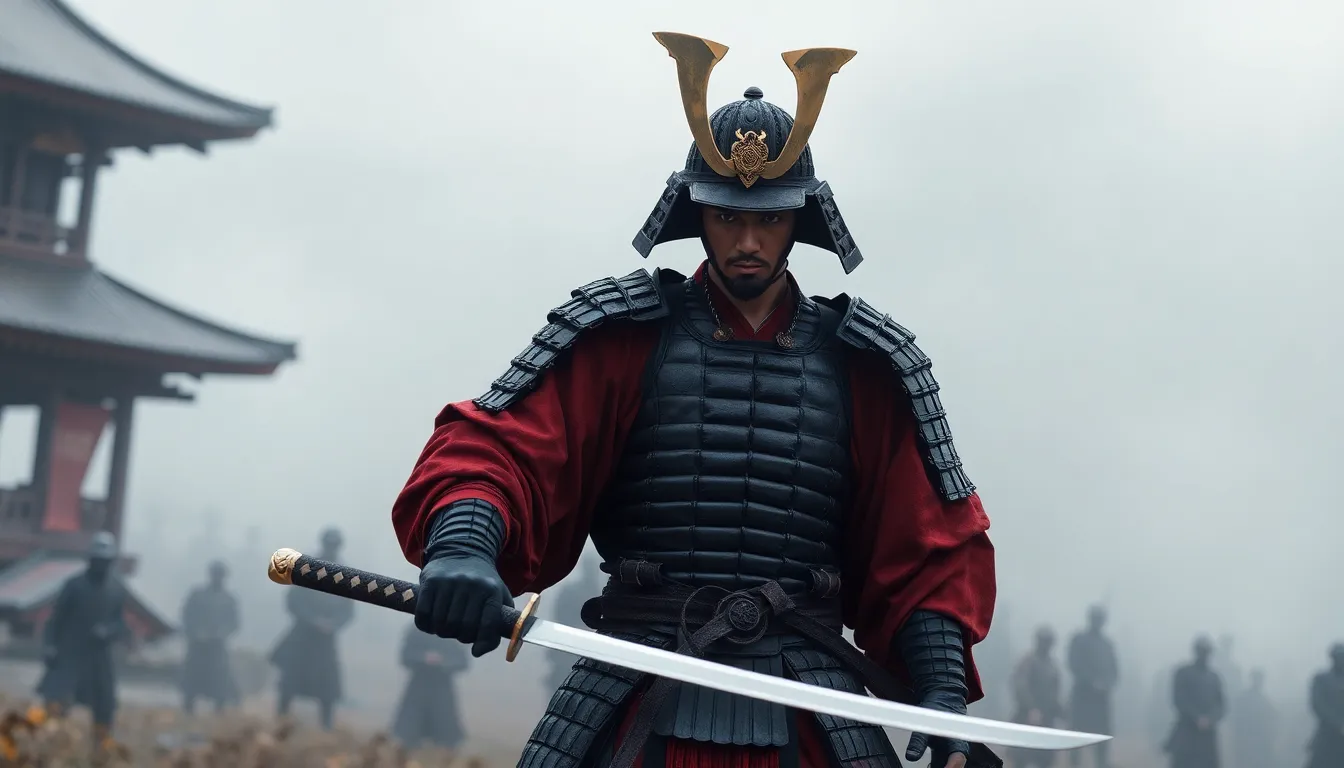In the heart of feudal Japan, where honor clashes with survival, the samurai code reigns supreme. “Ghost of Tsushima” invites players into a breathtaking world where the delicate balance between tradition and adaptation is put to the test. As they step into the sandals of Jin Sakai, they’ll discover that being a samurai isn’t just about flashy swordplay and dramatic duels; it’s about navigating the moral gray areas of loyalty, courage, and sacrifice.
Table of Contents
ToggleOverview of Ghost of Tsushima
“Ghost of Tsushima” unfolds in the late 13th century during the Mongol invasion of Japan. Players encounter the lush landscapes of Tsushima Island, where Jin Sakai, the last samurai, embarks on a quest to protect his homeland. Engaging in both stealth and combat, the gameplay emphasizes strategy in overcoming the overwhelming foe.
Moral dilemmas shape Jin’s journey as he wrestles with his samurai upbringing. Loyalty to his clan and the need to adapt to new tactics continually clash. Players are encouraged to explore various paths, embodying the duality of samurai honor and guerrilla warfare. The game’s setting immerses players in rich cultural elements, reflecting the period’s historical significance.
Characters, including allies and enemies, contribute depth to the storyline. Their interactions reveal the complexities of honor, betrayal, and sacrifice. Allies such as Masako and Yuna provide essential support, each bringing unique skills and backgrounds. Compelling narratives push players to consider their choices, impacting the game world and Jin’s transformation.
Aesthetics play a significant role in player experience. Visuals showcase breathtaking environments, from serene bamboo groves to the chaos of battle. The sound design enhances immersion, with dialogues and traditional music resonating throughout gameplay. Players often find themselves absorbed in this beautifully crafted world, which reflects both beauty and brutality.
“Ghost of Tsushima” captures the essence of samurai culture while exploring the struggle between tradition and change. Gamers discover that honor is not merely a code but a complex moral landscape requiring both courage and wisdom. The title stands as a tribute to resilience, urging players to navigate a path forged through both heritage and innovation.
The Samurai Code Explained

The samurai code, known as Bushido, forms the foundation of a samurai’s life. This code emphasizes virtues like courage, respect, and loyalty, shaping the character of warriors in feudal Japan.
Bushido Principles
Bushido defines the ethical framework of the samurai. It encompasses seven core principles: righteousness, courage, benevolence, respect, honesty, honor, and loyalty. Righteousness guides samurai in their moral decisions. Courage encourages them to confront fears and challenges head-on. Benevolence promotes compassion towards others, while respect underscores the importance of treating everyone with dignity. Honesty nurtures trustworthiness in interactions. Honor dictates the samurai’s reputation and place in society. Loyalty cements their commitment to their clan and leader, often requiring personal sacrifice.
Honor and Loyalty
Honor remains central to a samurai’s identity. Upholding one’s honor fosters respect from peers and enemies alike. A challenge arises when loyalty tests a samurai. Clashing allegiances can lead to moral dilemmas, especially for Jin Sakai, who faces choices between tradition and survival. Loyalty binds samurai to their lords, yet can also force them to navigate complex emotional landscapes. Decisions rooted in honor influence actions and relationships, driving samurai to protect their legacy. In times of conflict, balancing honor and loyalty defines a samurai’s path in pursuit of justice and integrity.
Application of the Samurai Code in Gameplay
In “Ghost of Tsushima,” the samurai code significantly influences gameplay and character development. Decisions made throughout Jin Sakai’s journey often reflect the principles of Bushido, determining not only his path but also the outcomes of various encounters.
Decision-Making and Consequences
Players experience the weight of their choices, as actions directly impact Jin’s honor and reputation. Moral dilemmas arise frequently, revealing contrasting paths of honor and survival. Choosing the way of the samurai results in direct confrontations with enemies, while embracing stealth often leads to different resolutions. Furthermore, the choices made in pivotal moments shape relationships with allies, like Masako and Yuna. Each decision carries consequences that ripple through the game’s narrative, emphasizing that honor comes at a price.
Influence on Character Development
Jin’s character growth reflects the struggle between traditional samurai values and the necessity for adaptation. As he faces various challenges, his understanding of honor evolves, affecting his behavior and interactions. Allies influence his transformation, especially when he confronts betrayal or loss. With every choice, he navigates the fine line between honor and practicality, embodying the complexity of a samurai’s life. The gameplay encourages players to reflect on their values, leading to personal investment in Jin’s development as a character. Each interaction sheds light on how the samurai code shapes not only his journey but the future of Tsushima itself.
Cultural Significance of the Samurai Code
Samurai culture embodies a rich history and deep-rooted values. The principles of Bushido, or the samurai code, serve as guiding tenets that dictate a samurai’s actions. Righteousness, courage, benevolence, respect, honesty, honor, and loyalty define the character of a true samurai.
Honor holds immense weight in this culture, shaping relationships and decisions. For Jin Sakai, navigating loyalty to his clan contrasts sharply with the need to adapt to a changing world. Each choice Jin makes throughout his journey underscores the importance of these core principles.
Virtues associated with the samurai code are evident in gameplay mechanics. Players face moral dilemmas that test their adherence to Bushido, impacting Jin’s honor and reputation. Choices lead to distinct paths, revealing the price of honor versus the necessity of survival.
Cultural heritage permeates not only the story but also the environment of Tsushima Island. Breathtaking visuals and authentic landscapes provide context that enhances player immersion. This visual fidelity connects players to the historical significance of the samurai’s struggle during the Mongol invasion.
Themes of sacrifice and personal growth emerge through interactions with other characters. Allies like Masako and Yuna represent different facets of honor, further complicating Jin’s understanding of loyalty. Their stories enrich the narrative, emphasizing the diversity of experiences in adhering to the samurai code.
The cultural significance of the samurai code extends beyond the gameplay, influencing how players experience themes of honor, loyalty, and adaptation. Understanding these principles fosters a deeper connection to the game’s historical context. Thus, “Ghost of Tsushima” captures the essence of samurai culture and its ongoing relevance in a world fraught with moral challenges.
The samurai code in “Ghost of Tsushima” serves as a profound lens through which players explore honor and morality. Jin Sakai’s journey reflects the timeless struggle between tradition and the necessity for change in turbulent times. Each decision made resonates deeply with the principles of Bushido, emphasizing that honor often comes at a significant cost.
As players navigate the stunning landscapes of Tsushima Island, they engage in a narrative rich with complex relationships and ethical dilemmas. The game’s mechanics reinforce the weight of choices, making every action impactful. Ultimately, “Ghost of Tsushima” not only entertains but also invites reflection on the enduring values of courage, loyalty, and sacrifice that define the samurai spirit.




